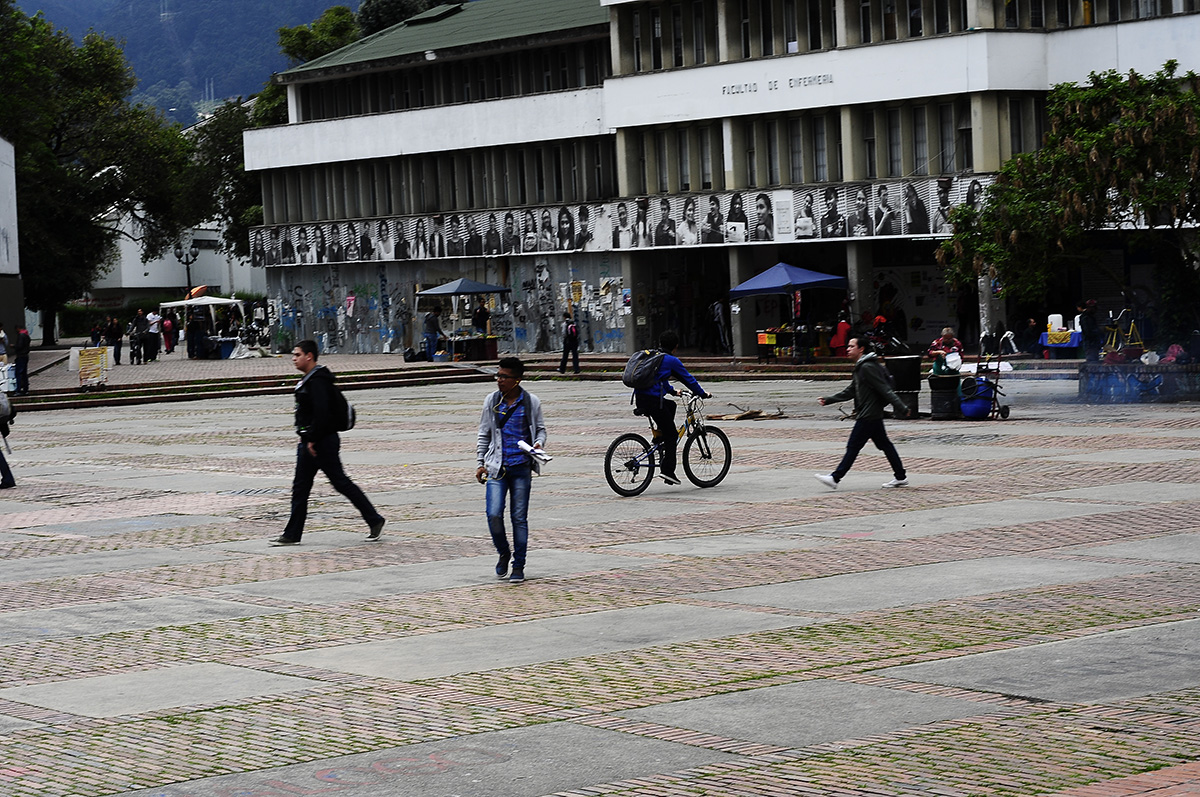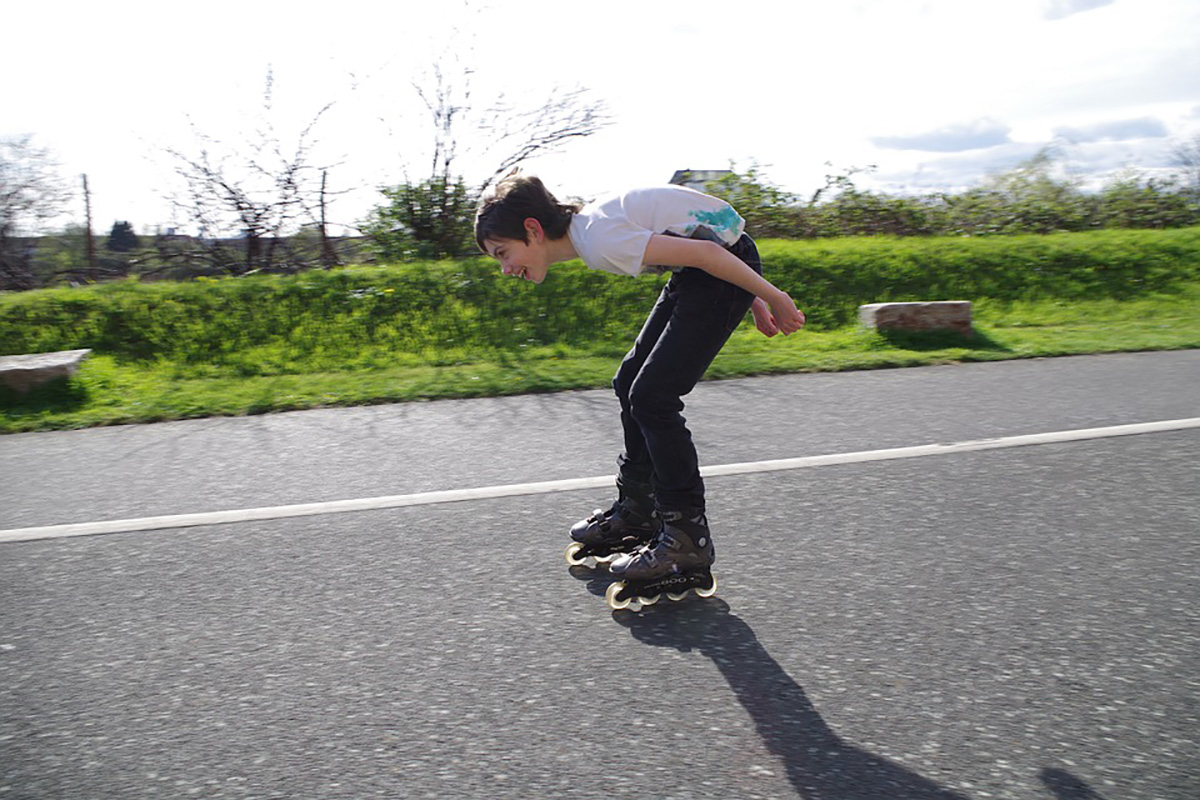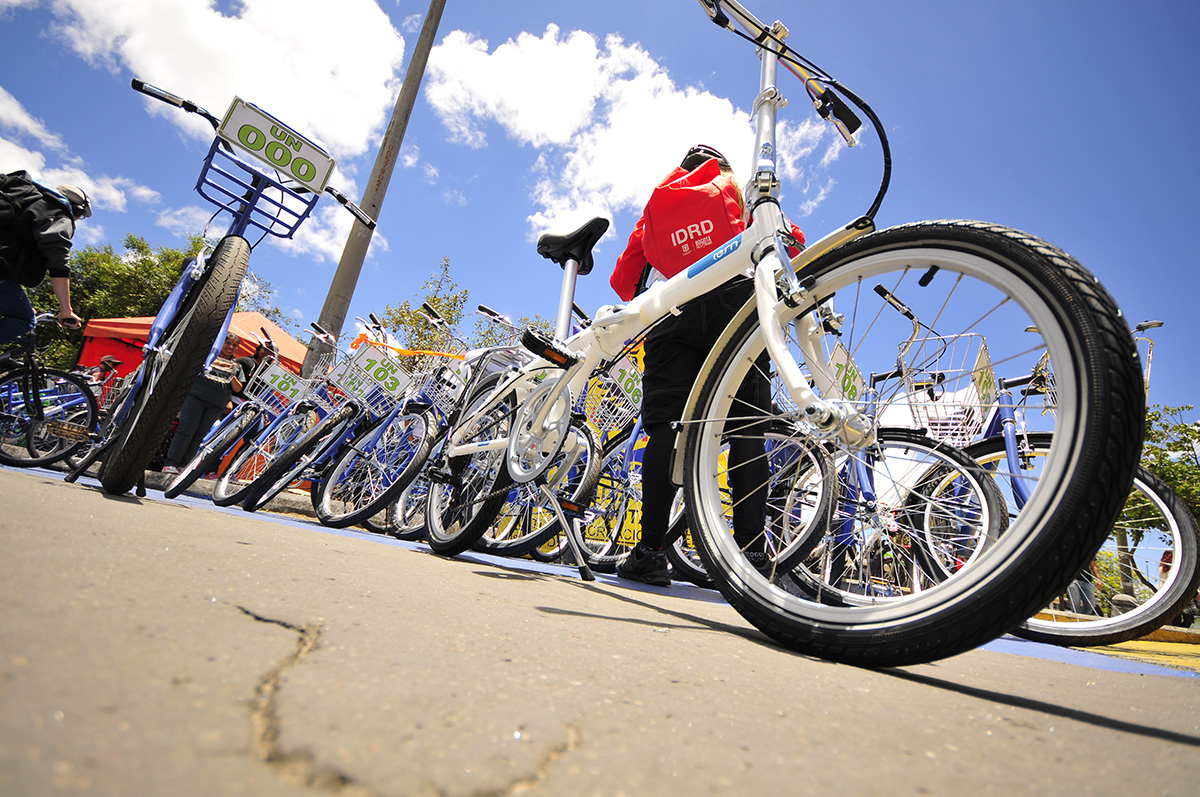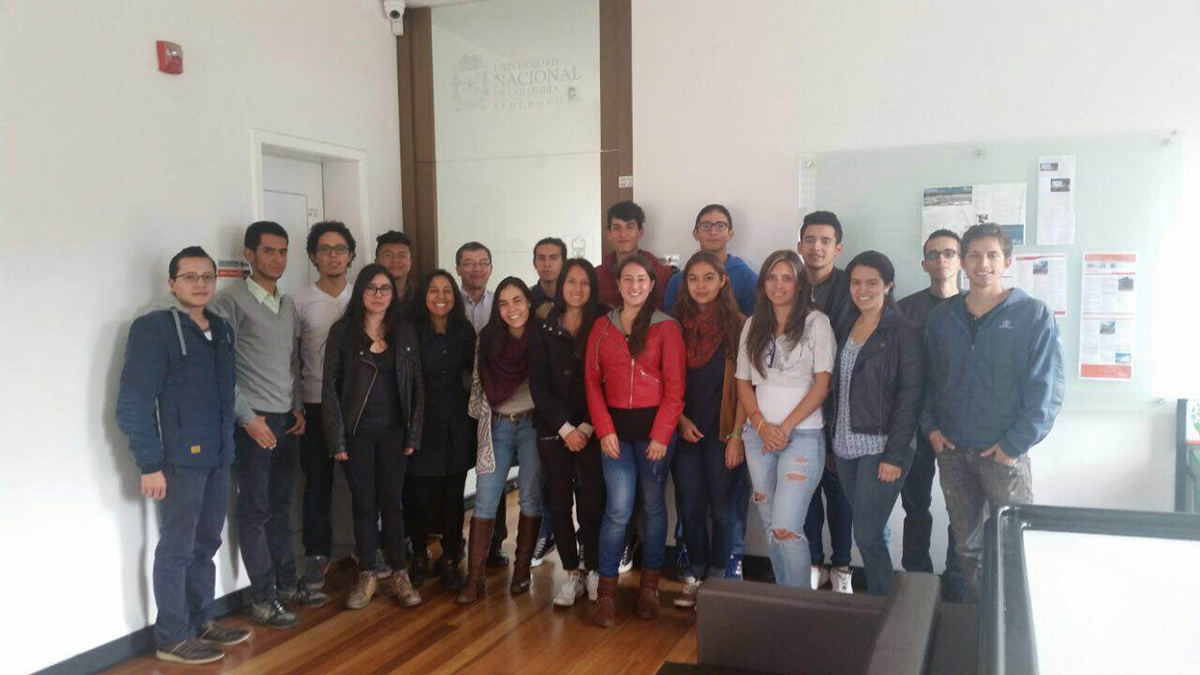The app designed by Universidad Nacional de Colombia (UNal) in Bogotá Civil Engineering students David Villarreal, Christian Camilo Pira, Angie Reina and Wilson Caro, was recently awarded during an event called "Desafíos ITS" (ITS Challenges). This initiative promoted by the Ministry of Transportation looks to create urban awareness and promote the creation of intelligent transportation systems.
The game establishes a system of scores to reward the best players with biking kits and participation in bike raffles, has two stages: one, roaming through the city and second a competition stage.
Players begin the session by creating a player profile and then establishing a route which will be carried out on a bike, roller skates, a kick scooter or walking. The game defines the distance, time, and climate variables based on Google Maps, reports of the Hydrology, Meteorology and Environmental Studies Institute (IDEAM, for its Spanish acronym) and the Bogotá Air Quality Monitoring Network.
The user which carries out the route obtains a score which depends on of several elements such as if they ride a bike at a moderate speed and respecting the traffic signs, receiving more points for complying with difficulty levels. Also if the player travels a longer route, if it is done while raining or chooses a route with good air quality.
Users accumulate miles and points with the purpose of reaching a competitive stage. Then with that, they can purchase skills, power and improve their user profiles.
During the route and competition, the game sends educational messages, thanks to users for using a sustainable transportation media and tries to persuade users to preserve the environment.
Furthermore, the students designed a version for children they called BiciWin Kids, with a more educational perspective.
"The purpose is to relieve the city of traffic, reducing pollution and improving the quality of life of the inhabitants," said Villarreal.
The also add that in the coming weeks they will have a meeting with the Ministry of Transportation with the purpose of specifying how the application will be developed to make it public.
The idea was supported by Engineer William Castro and a group of 18 UNal Civil Engineering students.
 Correo Electrónico
Correo Electrónico
 DNINFOA - SIA
DNINFOA - SIA
 Bibliotecas
Bibliotecas
 Convocatorias
Convocatorias
 Identidad UNAL
Identidad UNAL







